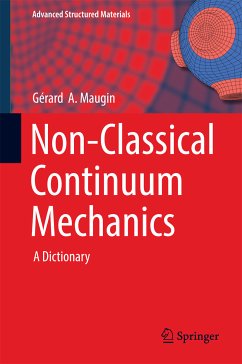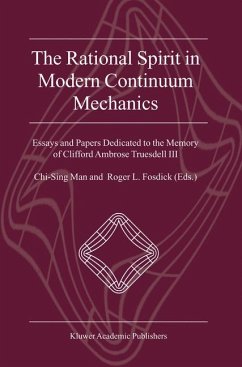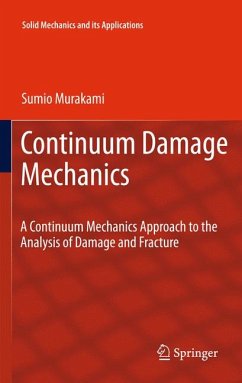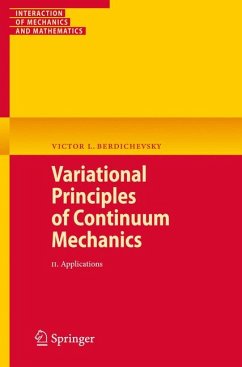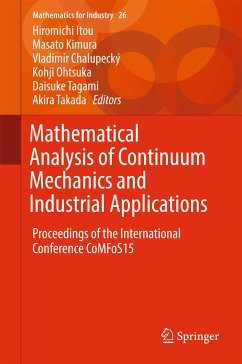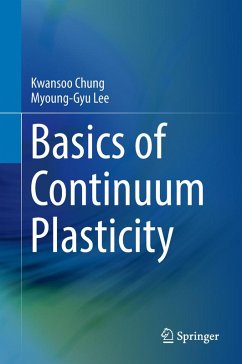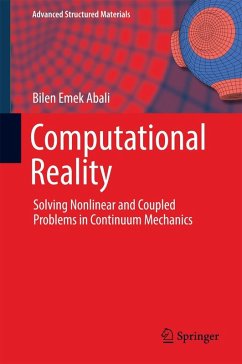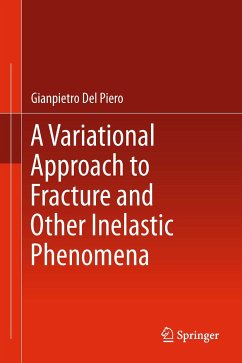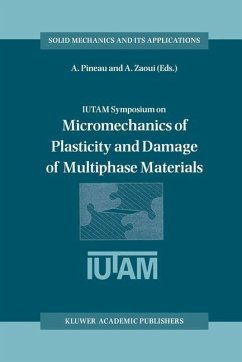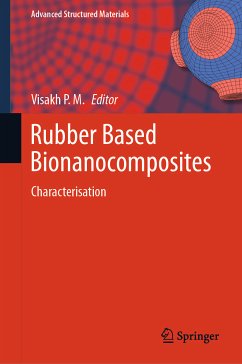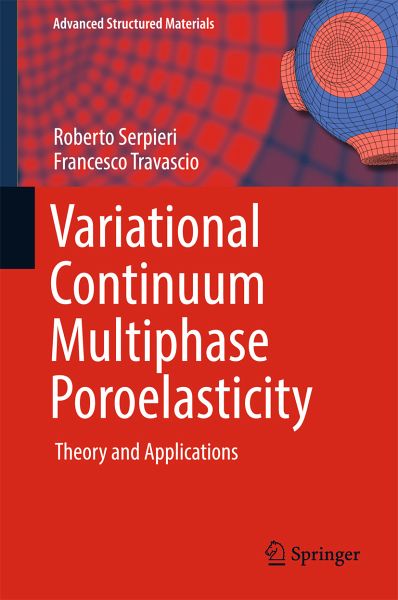
Variational Continuum Multiphase Poroelasticity (eBook, PDF)
Theory and Applications
Versandkostenfrei!
Sofort per Download lieferbar
72,95 €
inkl. MwSt.
Weitere Ausgaben:

PAYBACK Punkte
36 °P sammeln!
This book collects the theoretical derivation of a recently presented general variational macroscopic continuum theory of multiphase poroelasticity (VMTPM), together with its applications to consolidation and stress partitioning problems of interest in several applicative engineering contexts, such as in geomechanics and biomechanics.The theory is derived based on a purely-variational deduction, rooted in the least-Action principle, by considering a minimal set of kinematic descriptors. The treatment herein considered keeps a specific focus on the derivation of most general medium-independent ...
This book collects the theoretical derivation of a recently presented general variational macroscopic continuum theory of multiphase poroelasticity (VMTPM), together with its applications to consolidation and stress partitioning problems of interest in several applicative engineering contexts, such as in geomechanics and biomechanics.
The theory is derived based on a purely-variational deduction, rooted in the least-Action principle, by considering a minimal set of kinematic descriptors. The treatment herein considered keeps a specific focus on the derivation of most general medium-independent governing equations.
It is shown that VMTPM recovers paradigms of consolidated use in multiphase poroelasticity such as Terzaghi's stress partitioning principle and Biot's equations for wave propagation. In particular, the variational treatment permits the derivation of a general medium-independent stress partitioning law, and the proposed variational theory predicts that the externalstress, the fluid pressure, and the stress tensor work-associated with the macroscopic strain of the solid phase are partitioned according to a relation which, from a formal point of view, turns out to be strictly compliant with Terzaghi's law, irrespective of the microstructural and constitutive features of a given medium. Moreover, it is shown that some experimental observations on saturated sandstones, generally considered as proof of deviations from Terzaghi's law, are ordinarily predicted by VMTPM.
As a peculiar prediction of VMTPM, the book shows that the phenomenon of compression-induced liquefaction experimentally observed in cohesionless mixtures can be obtained as a natural implication of this theory by a purely rational deduction. A characterization of the phenomenon of crack closure in fractured media is also inferred in terms of macroscopic strain and stress paths.
Altogether the results reported in this monograph exemplify the capability of VMTPM to describe and predict a large class of linear and nonlinear mechanical behaviors observed in two-phase saturated materials.
The theory is derived based on a purely-variational deduction, rooted in the least-Action principle, by considering a minimal set of kinematic descriptors. The treatment herein considered keeps a specific focus on the derivation of most general medium-independent governing equations.
It is shown that VMTPM recovers paradigms of consolidated use in multiphase poroelasticity such as Terzaghi's stress partitioning principle and Biot's equations for wave propagation. In particular, the variational treatment permits the derivation of a general medium-independent stress partitioning law, and the proposed variational theory predicts that the externalstress, the fluid pressure, and the stress tensor work-associated with the macroscopic strain of the solid phase are partitioned according to a relation which, from a formal point of view, turns out to be strictly compliant with Terzaghi's law, irrespective of the microstructural and constitutive features of a given medium. Moreover, it is shown that some experimental observations on saturated sandstones, generally considered as proof of deviations from Terzaghi's law, are ordinarily predicted by VMTPM.
As a peculiar prediction of VMTPM, the book shows that the phenomenon of compression-induced liquefaction experimentally observed in cohesionless mixtures can be obtained as a natural implication of this theory by a purely rational deduction. A characterization of the phenomenon of crack closure in fractured media is also inferred in terms of macroscopic strain and stress paths.
Altogether the results reported in this monograph exemplify the capability of VMTPM to describe and predict a large class of linear and nonlinear mechanical behaviors observed in two-phase saturated materials.
Dieser Download kann aus rechtlichen Gründen nur mit Rechnungsadresse in A, B, BG, CY, CZ, D, DK, EW, E, FIN, F, GR, HR, H, IRL, I, LT, L, LR, M, NL, PL, P, R, S, SLO, SK ausgeliefert werden.



